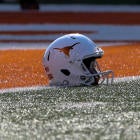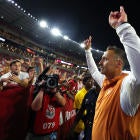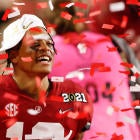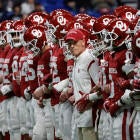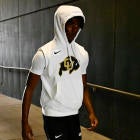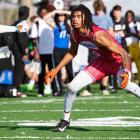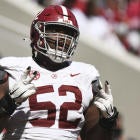One of the major arguments against universities paying their student-athletes is that many athletic departments don't turn a profit. Ignoring for a moment the ways athletic departments can ensure this is the case, if there's one athletic department in the country that has never had a problem making money, it's Texas. Surely, if there was a school that could afford to pay its players, it's Texas.
So I guess it's too bad that Texas president Greg Fenves "cannot comprehend" the idea of paying Texas' student-athletes.
Fenves was interviewed as part of a class-action antitrust lawsuit against the NCAA, and according to notes obtained from the interview, Fenves just doesn't believe it's possible to pay players at Texas.
In the interview, Fenves said he "cannot comprehend how athletics could be a part of university life." He went on to say that if players were paid, it would ruin the relationship between the players and fellow students and alumni.
"Students go to games to watch their fellow students compete, and that they would not be as interested in attending if the players were professional," Fenves said. He also went on to say that alumni wouldn't be as supportive of the school's athletic teams if they operated as "just another professional team."
Now, I don't know how true either one of these statements is. It's possible that paying players could affect the way both former and current students view a school's athletic programs. It's also possible it wouldn't have any effect at all. I mean, fans of professional sports teams seem to be just as ardent.
Unfortunately, there are no quotes from Fenves on whether he was able to comprehend the fact his school just provided its football players with lockers that cost $10,500 apiece, as this interview was conducted in late February, and the lockers were just unveiled earlier this month.
Some of us cannot comprehend how schools could decide spending $10,500 on a locker makes more sense than giving the players a larger share of the revenue pie.







